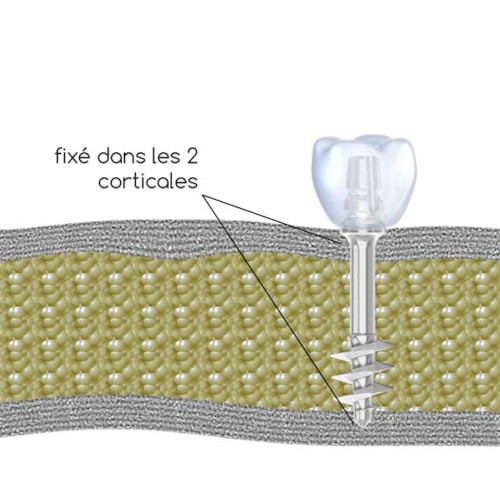Osteoporosis affects nearly 30% of postmenopausal women but also men. Osteoporosis also has consequences on teeth and teeth, oral health in general and dental implants. One type of dental implant that overcomes this problem, is the basal implant. Its physiological relationship with the bone tissue is mechanical. The retention of the basal dental implant in the cortical area of the bone makes it possible to treat patients suffering from 'osteoporosis except in certain special cases such as bisphosphonate treatment.
Effects of osteoporosis on teeth
Osteoporosis causes not only harmful consequences on the skeleton, but osteoporosis also leads to serious consequences on the teeth:
People with osteoporosis often have problems with tooth loosening. This bone loss leads to the mobility of the teeth and periodontal disease can then progress more quickly.



